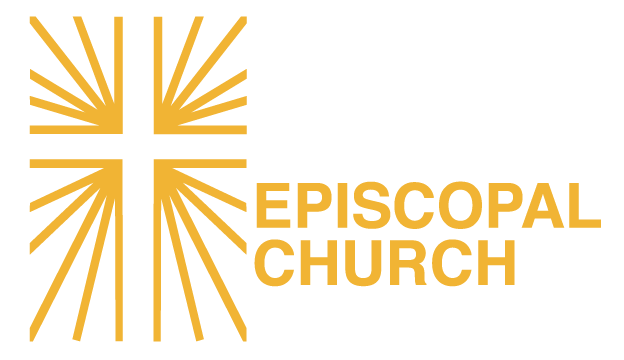As a community of faith communities in the Episcopal tradition, a central mission of the Convocation is to direct its collective efforts toward developing opportunities for growth in spirituality, Christian service, formation, and stewardship. While the Convocation has relatively limited financial resources, the bishop and Council of Advice are dedicated to the objective of directing our collective work toward the development of a network of knowledge-sharing encompassing all our congregations. One way we do this is by using the resources entrusted to the Convocation to provide grants that fund creative initiatives in our congregations.
The main purpose of these grants is to support development of our mission, by enabling congregations to carry out a project they might not otherwise be able to do; and offering a network of innovative thinking, knowledge and experience of benefit elsewhere in the Convocation.
In addition, the Convocation’s leadership recognizes that unexpected needs may arise in congregations, and so the budget includes a provision for both general grants and exceptional (“emergency”) grants.
Unless otherwise specified, all our grant programs follow two guidelines:
- Grants are distributed only to those communities who are a part of the Convocation.
- Disbursements do not exceed 10% of the total budget for that year’s grant program. Exceptions can be requested.
For 2025, the Convocation has set aside €90,000 as a pool from which to make general grants. Given this, it is not possible to fully fund all grants received. The Finance Committee of the Convocation reviews all grant applications and submits a recommendation to the Council of Advice, which must give its approval to all awards.
The due date for general grant applications for calendar year 2026 is December 15th, 2025.
Each of you should use whatever gift you have received to serve others, as faithful stewards of God’s grace in its various forms.
The initiatives we seek to support will
Propose innovative or creative ways of helping our congregations to grow spiritually, educationally, or in Christian service.
Articulate a clear theory of change (what is the difference our initiative will make?)
Describe a coherent approach toward making that change (How will we make that difference?)
Outline a plan for evaluating the results (What change did we actually make?)
Convocation Refugee Grant Program (CRGP)
Through a generous partnership with Episcopal Relief & Development (ERD), we support congregations building programs and projects to welcome their refugee neighbors in their communities.
General Grant Requests
Digital Ministry Tech Enhancement
One result of the pandemic worth encouraging and growing was the creation of new communities connected to us through virtual worship, fellowship, and formation initiatives.
Examples of what might be supported include:
| Systems to assure high-speed wifi connectivity in the church |
| Equipment to improve video and audio capture in the church |
| Display screens for the worship space |
| Training opportunities for digital worship leaders |
| Connecting online giving opportunities to a congregation’s digital presence |
Exceptional (Emergency) Assistance
Realizing that congregations can at times encounter unusual and unforeseen circumstances, applications for Exceptional Grants will also be considered that assist individual missions or parishes directly, but that do not necessarily contain an explicit benefit for other parishes.
Normally, foreseeable events (for example, building maintenance, the cost of a rector search, or provision for a rector’s sabbatical) will not be covered.
The Whalon Fund for the Creative Arts

The Whalon Fund for the Creative Arts, created in honor of the Rt. Rev. Pierre Whalon, the Convocation’s first elected full-time bishop and a talented musician, supports arts projects that congregations or individuals would not be able to do or afford on their own. The Fund will provide grants for both the performing and visual arts that are initiated from within the congregations and other entities of the Convocation and that benefit those same congregations and/or the communities they serve and /or the Convocation and wider church.
Ultimately, the Fund’s aim is to “support creative arts in the parishes and missions of the Convocation.”
Grant Application & Reporting Procedures
All grant applications are processed through ChurchCenter (also known as PlanningCenter). A profile must be created on the platform to access. Reporting documents for new grant applications will also be submitted on ChurchCenter and when they require additional information, these document templates are found below and may be uploaded and submitted at the same time as the grant application.
Grant reports may also be submitted separately as part of the yearly financial due dilligence requirements by email to office@episcopaleurope.org
Applying
Grant applications are made up of the following documents:
| 1. Grant-specific application form (each grant has its own form) | 2.Year-to-date Financial Statement for the current year | 3. Ongoing Grant Report for any running grant in the current year (1-3 paragraphs) (if applicable) | 4.Grant Project Learning Report for any grant received the previous year (if applicable) | 5. Grant Expenditure Report for any grant received the previous year, with all required receipts, etc. (if applicable) |
Note that the Parochial Report for the previous year of the administering congregation must have been submitted for the grant to be awarded.
Reporting
Each grant recipient is encouraged to assign leadership and responsibility to a person (Grant Officer) who will oversee the project and also be a liaison to the Council of Advice. This may be the Rector, a member of the Vestry or Bishop’s Committee, or another member of the congregation. The Council of Advice will assign one member to liaise directly with each Grant Officer to offer support in the submission of grant applications and in the implementation of the project. Note that the Council of Advice has agreed to a policy under which no grants of the Convocation will be made directly to individuals.
In order that the Convocation as a whole might learn from every Euro spent, each grant recipient, whatever the category of the grant, is required to complete a Grant Project Learning Report as well as a grant expenditure report for grants received in the previous year. The Council of Advice will collate and summarize the Grant Project Learning Reports for presentation at the Convocation Convention, in order to share best practices with the broader Convocation and to stimulate further creative approaches to ministry and mission.
